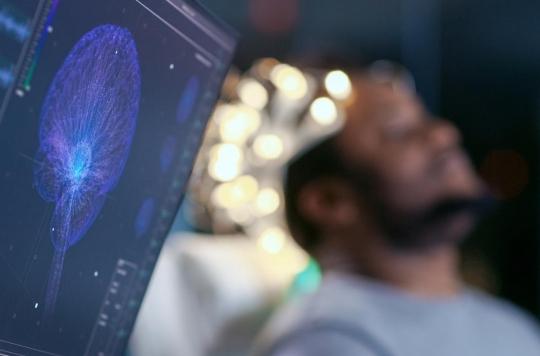The plasticity of new neurons in adults allows them to learn and memorize while they sleep.

- It is neurogenesis in the hippocampus, the area of the brain where memory is stored, that is the key to nocturnal memorization.
- It is the new adult neurons, with greater plasticity than the old ones, that enable learning during sleep.
Japanese researchers have managed to understand how our brain works to memorize and learn during sleep. A memorization allowed by the plasticity of the new neurons which are born in the adult. Scientists from the International Institute for Integrative Sleep Medicine at Tsukuba University (Japan) published their results on June 4 in the journal Cell.
Neurogenesis in the hippocampus
The key to memorization during sleep lies in the ability of brain cells to regenerate. “In the adult brain, cells are not replaced as is the case with liver, blood or skin cells, recalls Masanori Sakaguchi, lead researcher of the study. However, there is neurogenesis in our hippocampus, region of the brain where memory is stored. Admittedly, this capacity for neuronal regeneration in adults is reduced, but it is nonetheless potentially beneficial.”
If this process is already known when we are awake, researchers have managed to understand how it happens during our sleep. To do this, they subjected mice to a fear conditioning test in order to create a new memory in them. Concretely, it is a repetition of a moderate shock to the paw after hearing an auditory stimulus. Using a miniature microscope, the researchers recorded the activity of the new neurons.
Same process in humans as in mice
The results showed an activation of these neurons just after the shock but also during sleep and the next day when the researchers repeated the test. To test memory for this experience, the researchers inhibited young adult neurons through optogenetics. This experiment showed that the mice only vaguely remembered the experience of the day before, revealing that it is the new adult neurons, with greater plasticity than the old ones, which allow learning during sleep.
If these experiences are to be confirmed in humans, the researchers are convinced that the same process is at work. “Since hippocampal neurogenesis has been studied quite intensively in the human brain, I have no reason to doubt that new adult neurons are just as necessary for memory consolidation during REM sleep., says Masanori Sakaguchi. The latter considers that knowledge of this process “could facilitate the development of new treatments for memory disorders.”
.
















